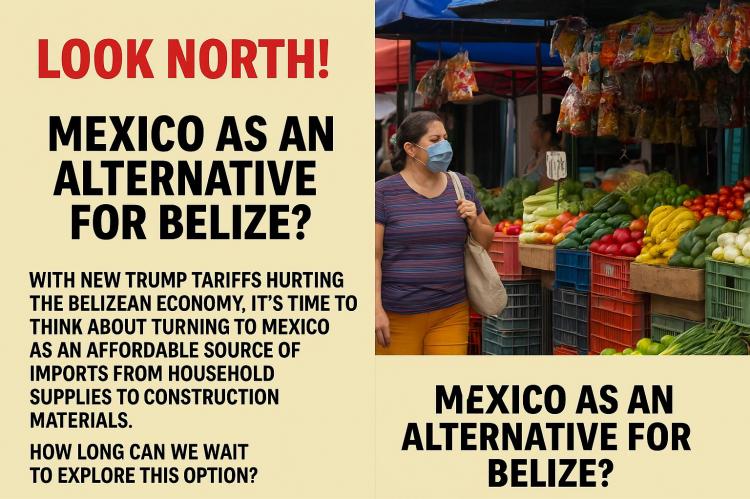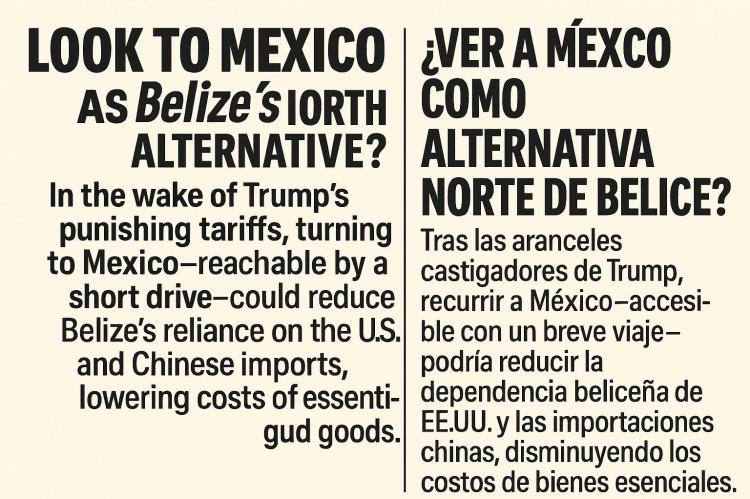Tariff Shockwaves: Belize and the Caribbean on the Brink of a Trade War Fallout
By: Omar Silva
National Perspective Bz – Digital 2025
Belize City: Sunday 6th April 2025
As the world watches thousands flood the streets in protest across the United States and global cities over President Donald Trump’s return to tariffs, Caribbean nations brace for a storm they neither caused nor can stop. Dubbed “Liberation Day,” Trump’s sweeping new trade measures impose a 10% baseline tariff on countries like Belize—along with a punishing 34% tariff on Chinese goods and up to $1.5 million levies on Chinese-built cargo vessels docking at U.S. ports.
The implications for a small import-dependent economy like Belize are staggering. With over 90% of its goods imported—many originating from or routed through the U.S. and China—Belize is now staring down the barrel of costlier goods, slower exports, and a dangerous economic squeeze.
Exporters like Marie Sharp’s Fine Foods Ltd., which has enjoyed duty-free access to the U.S. since 1989, are suddenly facing shrinking margins, reduced orders, and job uncertainty. “It’s a slap to Belize,” said Chief Sales and Marketing Director Jody Williams. “We never priced our products with a 10% tariff in mind—neither did our U.S. partners.”
With supply chains disrupted and container fees expected to double—Belizean consumers will soon see the fallout at supermarkets, hardware stores, clothing outlets, and online checkout screens from sites like Shein and Temu. A 54% cumulative tariff on Chinese-origin goods, routed through the U.S., is expected to cause across-the-board price hikes, further squeezing working-class families.
And it’s not just consumers feeling the pinch. The tourism sector, still reeling from post-COVID recovery, could suffer a new blow as American travelers face economic uncertainty and rising costs at home. Hotel bookings and cruise arrivals could slow. “We must act now to protect our economic lifelines,” urged CARICOM Chair Mia Mottley in a bold address.
Mottley’s call for regional unity, investment in local production, trade diversification, and a proactive tourism strategy resonates sharply in Belize, where over 40 foreign-funded government projects were recently cut and the country operates on a fragile three-month import cover. The situation is compounded by Belize’s fixed 2:1 currency peg to the U.S. dollar, limiting its ability to adjust to inflation or rising costs.
At a recent stakeholder meeting, Belize’s Minister of State for Finance, Christopher Coye, acknowledged that the government is still “gathering data,” and can't yet determine the full impact on Belize’s key exports or macroeconomic stability. Meanwhile, the clock ticks.
As Mottley aptly noted, “Regardless of what our Caribbean governments will do, we could lower our tariffs to zero in CARICOM, and it will not make a lick of difference.” Why? Because our economies are still too small, too dependent, and too unprepared.
If there was ever a wake-up call for economic transformation, regional solidarity, and bold local leadership, this is it. The time for "wait and see" is over.
- Log in to post comments


